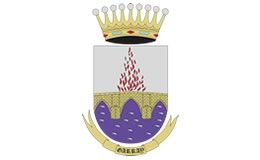War flares up in the year 143 BC the performance of Roman administrators and socio-economic situation of the people inside had changed little, hence the The war broke out in 143 BC. The action of Roman administrators and the socio-economic situation of the towns of the interior had changed very little for this reason the Celtiberians rose against Rome as it had happened before with the Lusitanians leaded by Viriathus (147 BC). In this way the second phase of the Celtiberian wars began.
During the years 141 and 140 Pompey was appointed. He realized with 30,000 infantrymen and 2,000 riders the itinerary from the Jalon River to Numantia (he occupied probably the camp of the Castillejo) and was defeated by Numantians and later by the inhabitants of Termes. He went to Numantia for the second time and tried to besiege it. He thought about also the realization of a ditch which joined the Merdancho River to the Duero River to block the way of the Eastern plain. But the constant attacks of the Numantians made difficult these works of block and caused big defeats because the second failure against Numantia obliged him to agree to the conditions of peace set by Numantians through their chief Megara. But after having carried out what was established by Numantians and with the pretext of the arrival of a new general who replaced him, he denied his oath and referred the matter to the Senate of Rome. For this reason in 139 BC the war with Numantia finished while the emissaries of the city agreed terms for peace in Rome. The Senate was on Pompey side and approved the breaking of the peace ordering to Popillius Laenas to resume the war. It meant that for the third time a Roman general broke a commitment with the Celtiberians and that the Senate rejected a treaty made by a general.










